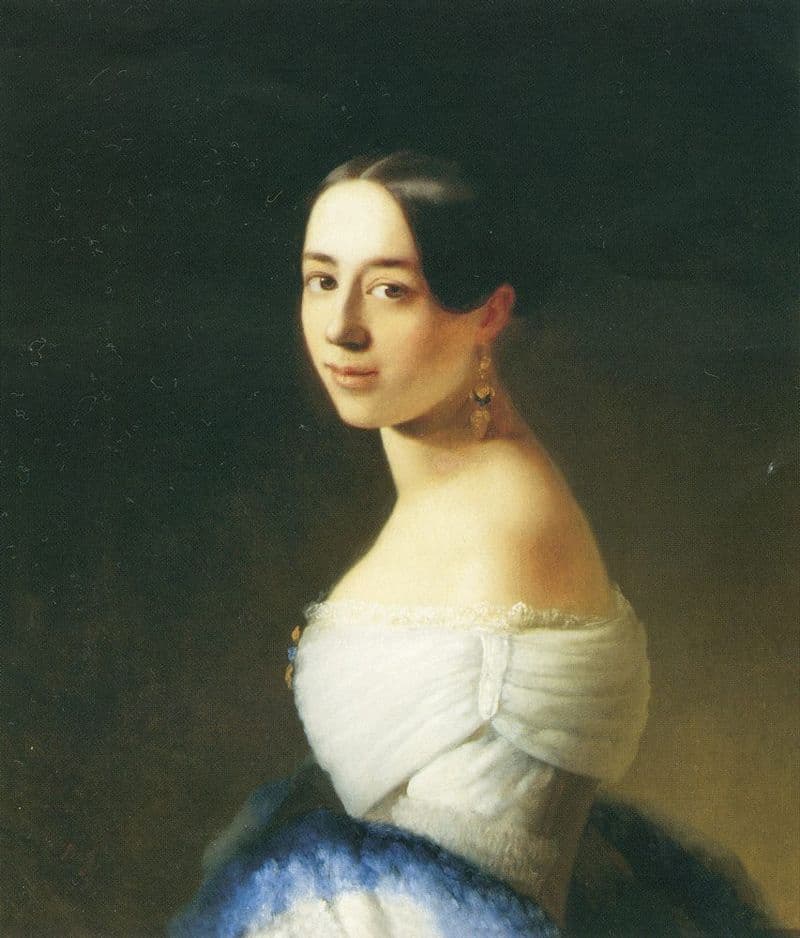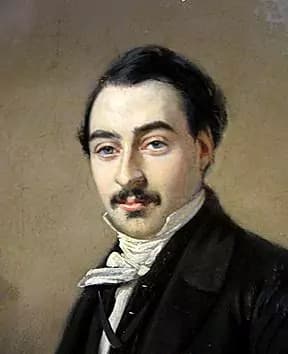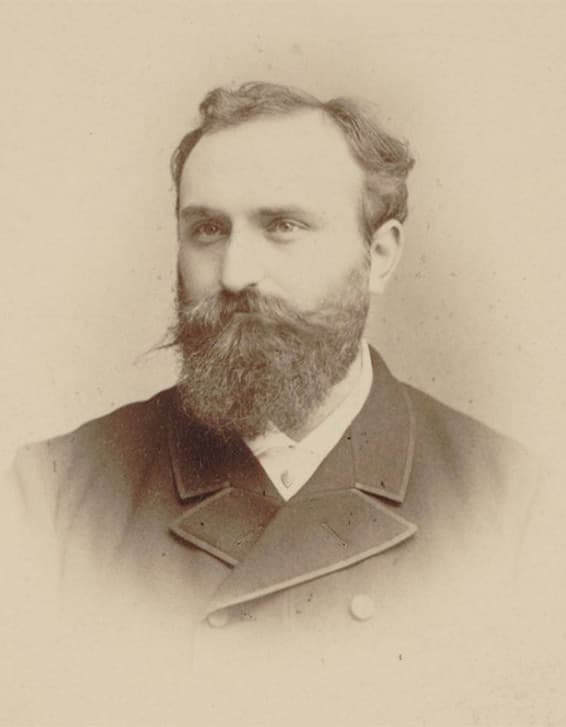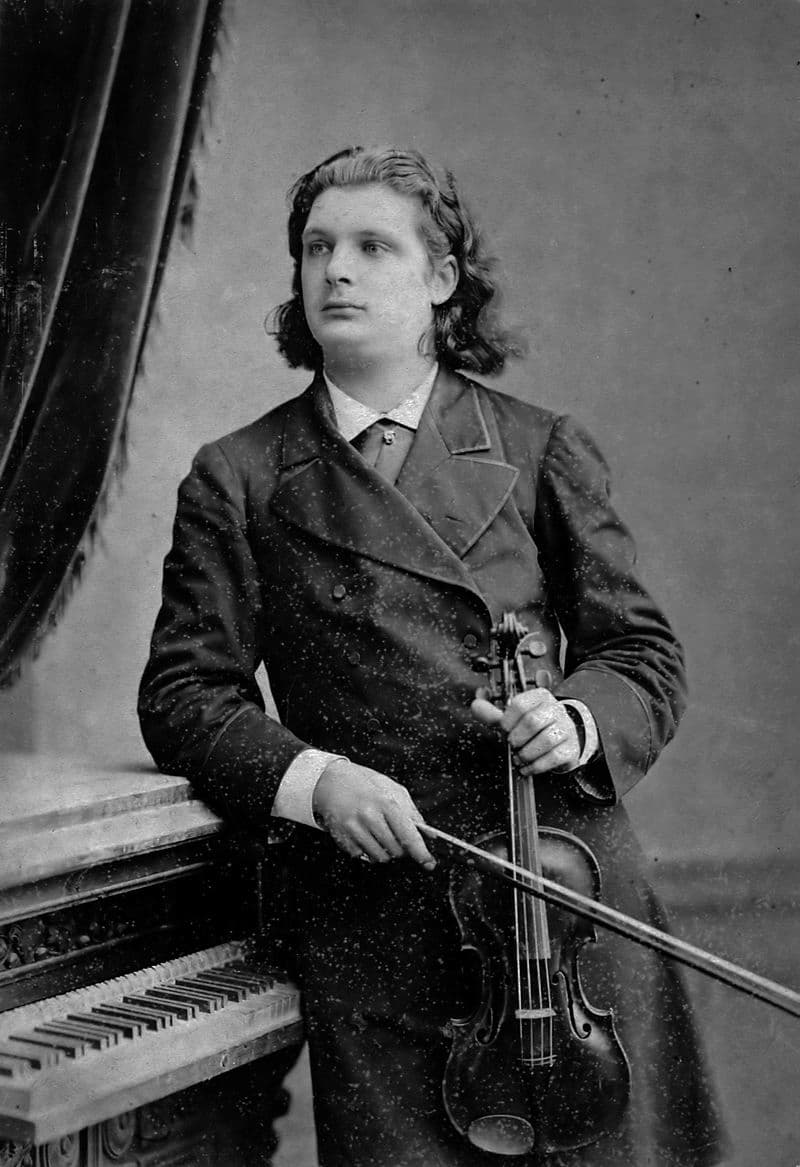In a short story by Ivan Turgenev (1818–1883), Le chant de l’amour triumphant, the artist Fabius has prevailed against the musician Muzzio in persuading the beautiful Valeria to marry him. The flaxen hair and blue eyes of Fabius prevailed against the black hair and dark brown eyes of Muzzio in persuading the lute-playing Valeria of his intentions. As per prior agreement, if one suitor won over the other, the other would retire from the competition.

Ivan Turgenev
Muzzio leaves town before the wedding, telling Fabio that he will not be returning until ‘he felt the last traces of passion had vanished from his heart.’
Five years later, Muzzio returns with a mute Malay as his only servant. He came back with boxes of treasures: rugs, silk materials, velvet and brocade clothes, weapons, goblets, dishes and bowls decorated with enamel, gold and silver goods inlaid with pearl and turquoise, carved boxes of stone and ivory, spices, incense, the skins and feathers of unknown animals, and, for Valeria a pearl necklace, given to Muzzio by the king of Persia.
Every night, Muzzio would tell tales of his travels and the exotic places he’d been and some of the magic tricks he’d learned, and his Malay servant played on his three-string Indian violin. Finally, the servant transfixes everyone with one last melody called ‘the song of happy, triumphant love.’
That night, Valeria dreamed she was in an exotic and beautiful blue-tiled room, and then Muzzio came and enfolded her in his arms. She awoke at home and woke Fabio, and as they lay there in bed, they heard the song again.
In the morning, they breakfasted with Muzzio, and he told them that before playing the song again, he’d had a wonderful dream, set in a blue-tiled room, where he met a woman that he had once loved…and when he awoke, he played the song.
The story continues until Fabio stabs Muzzio as he’s summoning Valeria to come into the garden with him. Although Fabio is convinced he’s killed Muzzio, the Malay servant seems to have brought him back to life, and they leave Fabio’s and Valerio’s house. Fabio resumes his painting of Valeria as Cecilia, the patron saint of music, and as she sits at her organ, she starts to play THAT song….and feels within her a new life.
In real life, Turgenev was in love with the mezzo-soprano Pauline García (1821–1910), having met her in Moscow in 1841 and became enraptured by her Rosina in The Barber of Seville. She returned to France, where she married Louis Viardot, an author and director of the Théâtre Italien in Paris. In 1845, he left Russia and lived in the Viardot household, treated her four children as his own, and remained there until his death. For her part, she read and criticized his work and promoted him through her connections. Their exact relationship has never really been settled. Friends or lovers? If we take Turgenev’s short story as an analogy, we’re still left in the dark.

Carl Timoleon von Neff: Pauline Viardot-García, 1842

Louis Viardot
Ernest Chausson (1855–1899) took Turgenev’s story as the inspiration for his Poème, op. 25, first written in 1896 as a work for violin and orchestra and then arranged by Chausson for violin and piano.

Ernest Chausson
Unpublished in his lifetime, the arrangement made by Chausson for violin, string quartet, and piano was only discovered in 1996. The work was written for the Belgian violinist Eugène Ysaÿe (1858–1931), and Chausson consulted with the violinist about the violin part. Ysaÿe’s version of the original violin part of the orchestral version, marked to make the violin part easier to play and to stand out better against the orchestral background, wasn’t used in the final printed score until Ysaÿe’s son published them later.

Eugène Ysaÿe, 1883 (Bibliothèque royale de Belgique)
Ernest Chausson: Poème, Op. 25 (version for violin, piano and string quartet) (Philippe Graffin, violin; Pascal Devoyon, piano; The Chilingirian String Quartet)
What Chausson took from Turgenev’s tale was its sense of uneasy dreaminess, and how music can evoke the spirit to strong emotions. It’s not known if Chausson ever met Turgenev, but he did entertain the Viardots and may have known of the semi-autobiographical nature of the story.
For more of the best in classical music, sign up for our E-Newsletter


I first listened to Poem when I was 20. Almost 50 years later, you taught me the story behind it. Thank you for the enlightenment. It’s never too late to learn.